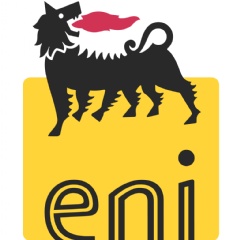Eni Employees in Porto Marghera begin collecting used cooking oils for conversion into biofuels
The project will be progressively extended to other Company sites in Italy
†Eni is the first company in the world to have taken a traditional refinery and transformed it into a Bio-Refinery using proprietary technology. As of today, Eni will begin collecting used cooking oils from the homes of its employees, which will then be converted into high-quality biofuels. This pioneering initiative is part of Eniís commitment to adopt a circular economy programme across all of its business areas, with the aim of maximising efficiency and the sustainable use of energy. The project is being launched in the Eni Bio-Refinery in Venice following an agreement between Eni and Veritas, the multi-utility company responsible for the collection and treatment of waste in the Venice area. Over the course of the next few weeks, the project will be extended to the Porto Marghera petrochemical plant where Eniís subsidiaries Versalis and Syndial also operate.
A container made specifically for the collection of used cooking oils has already been installed inside the Bio-Refinery and employees have been given a special jerry can to facilitate the disposal of their used oils.†
Veritas will be in charge of emptying the container. The City of Venice, Veritas, AVM/ACTV and Eni signed an agreement on 9 March 2018†to deliver the purified oil to the Venice Bio-Refinery , which will then convert the oil into the high-quality biofuel Enidiesel+, a 15% renewable product, which will be used by the†vaporetti†in the lagoon.
Eni plans to progressively extend the project of collecting used cooking oils to other Company sites in Italy.
The primary objective, in addition to kick-starting a true circular economy, is to convert waste which would otherwise be potentially detrimental to the environment into a new energy resource. Estimates show that every Italian family produces about 3 litres of used cooking, frying and food oils every year. Disposing of this oil as domestic waste causes several problems. It pollutes surface waters, making large quantities of water unfit for drinking, and harms the flora and fauna of rivers, lakes and seas. Dwellings are also affected negatively because sewers and collecting systems become blocked, which increases the cost of maintenance. Finally, it causes the performance of purification plants to fall since every single litre of oil treated in waste water produces up to 4 kg of sludge.
( Press Release Image: https://photos.webwire.com/prmedia/6/224867/224867-1.png )
WebWireID224867
This news content was configured by WebWire editorial staff. Linking is permitted.
News Release Distribution and Press Release Distribution Services Provided by WebWire.
